Why Ghost is the best CMS for SEO
When it comes to choosing your tools, don't settle.

In my day job as a Senior SEO Analyst, I get to work on a lot of interesting problems across a variety of systems. I’ve seen first-hand what needs to be in place to reach millions of potential readers on a monthly, or even daily, basis. I’ve heard about the frustrations everyone from engineering to marketing faces when a tool doesn’t work like it’s supposed to.
But before I ever worked in enterprise SEO roles, I blogged — for nearly a decade. During that time, I wrote for and ranked articles on literally dozens of different content management systems. I learned what elements need to be in place so that SEO success transforms from a dream into an inevitability.
In this article, I’m going to explain exactly what search engine optimization factors to look for when choosing your CMS and why I strongly recommend choosing Ghost.
Popular does not mean best
Before we dive into the details below, I wanted to take a second to point out something I wish more people understood: the best CMS for SEO doesn’t necessarily mean the most popular.
For me, “best” means the solution that is most likely going to get me the results I’m after with the least amount of additional work possible.
WordPress has been a staple of the online blogging community for a long time, and for a good reason — it’s a great tool that can do almost anything you imagine... with enough money and engineering. But the same things that make it such a broadly applicable solution also make it a terrible blogging platform.
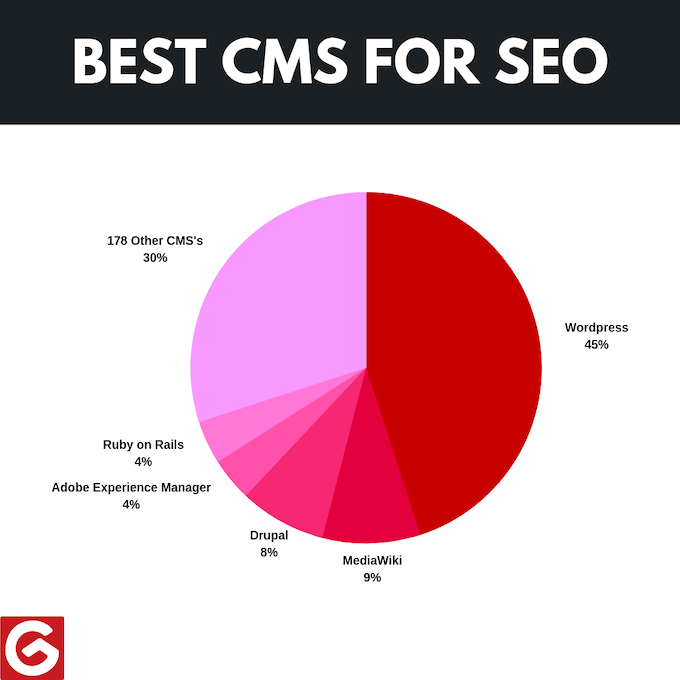
Atop the list are the ever-growing list of security concerns (you can’t access any of the SEO capabilities without installing plug-ins that put your entire site at risk), the snails-pace site speed, and the painful process of actually getting content uploaded and published.
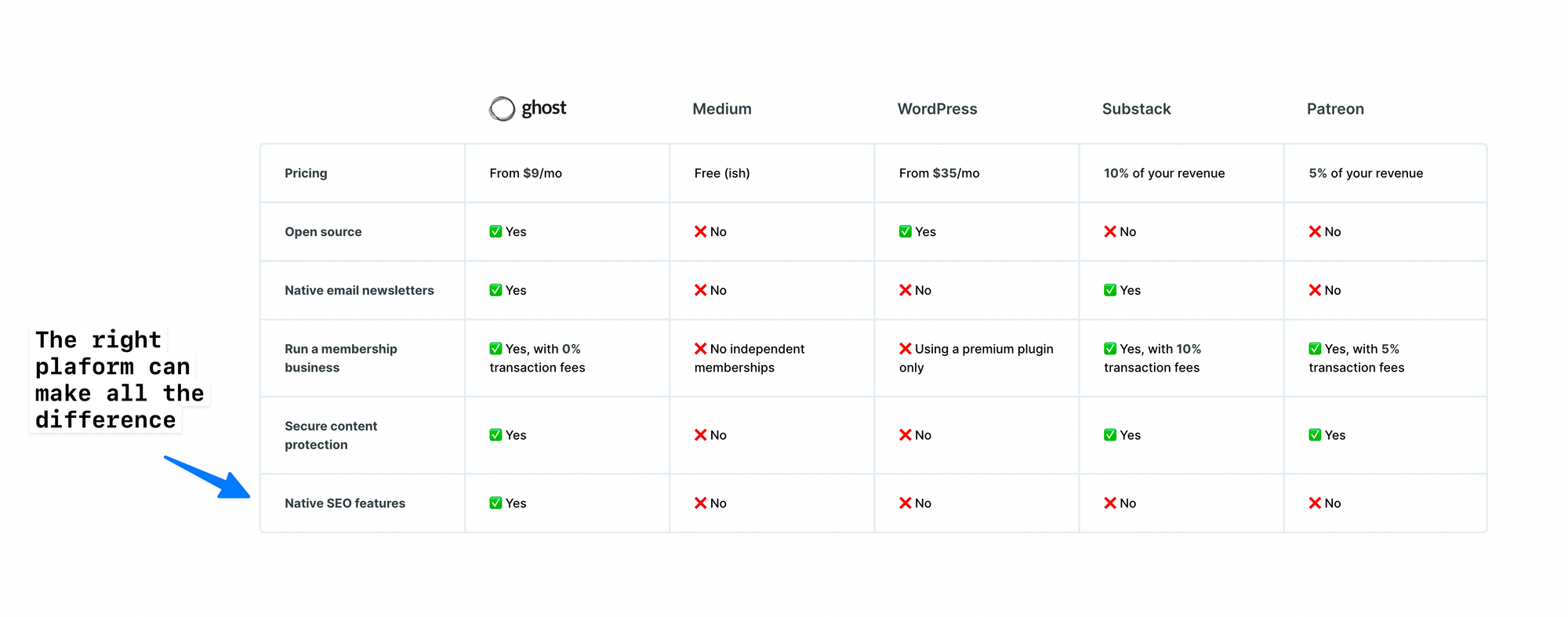
So, if you plan to build a complex website and have a dedicated software engineer to help you do it — by all means go the WordPress route. But if you’re goal is simpler than that, if all you want is a blogging solution that makes your words look beautiful and delivers them to readers lighting fast, then keep reading.
What to look for when choosing a CMS
If you’re new to the world of blogging and SEO, it takes 3 steps for search engines to find what you’ve published and show it to people looking for similar information: crawl, index, and rank.
In most cases, the CMS you choose takes care of the first two steps by making sure everything you publish is crawlable and indexable. Then, it’s up to you to understand how to make your content great so that it ranks (e.g., shows up on the first page of Google results).

Now, in order for the crawl, index, and rank steps to happen, you need to understand that SEO itself has different specialties:
For our purposes of choosing a great CMS, the only ones we need to worry about are these two:
- On-page SEO — How do we optimize our content and improve how search engines understand our content?
- Technical SEO — How do we optimize how our website functions and is organized?
So, I broke down the most important SEO features for each category. Basically, what do I look for when optimizing a new project, and how easily does a CMS enable me to do what’s needed?
On-page SEO features
- Easy access. First and foremost, everything needs to be accessible to a non-programmer. I shouldn’t have to spin up development software tools to make a few minor changes or install a sketchy plug-in.
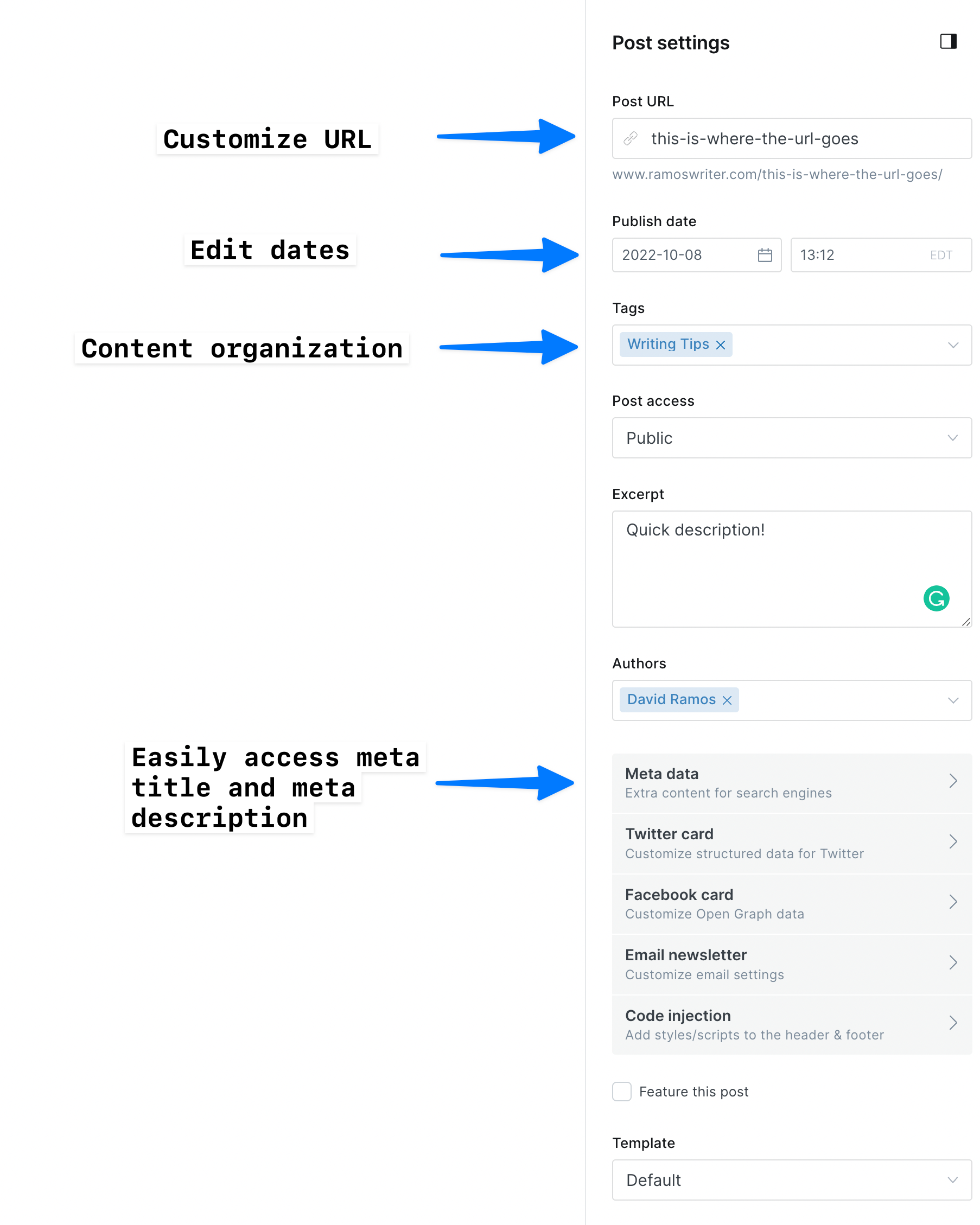
- Customize URL. Can I easily change the web address?
- Customize meta tags and meta descriptions. These are the elements that show up directly on Google and other search engine pages. When optimized, these can vastly improve click-through rates.
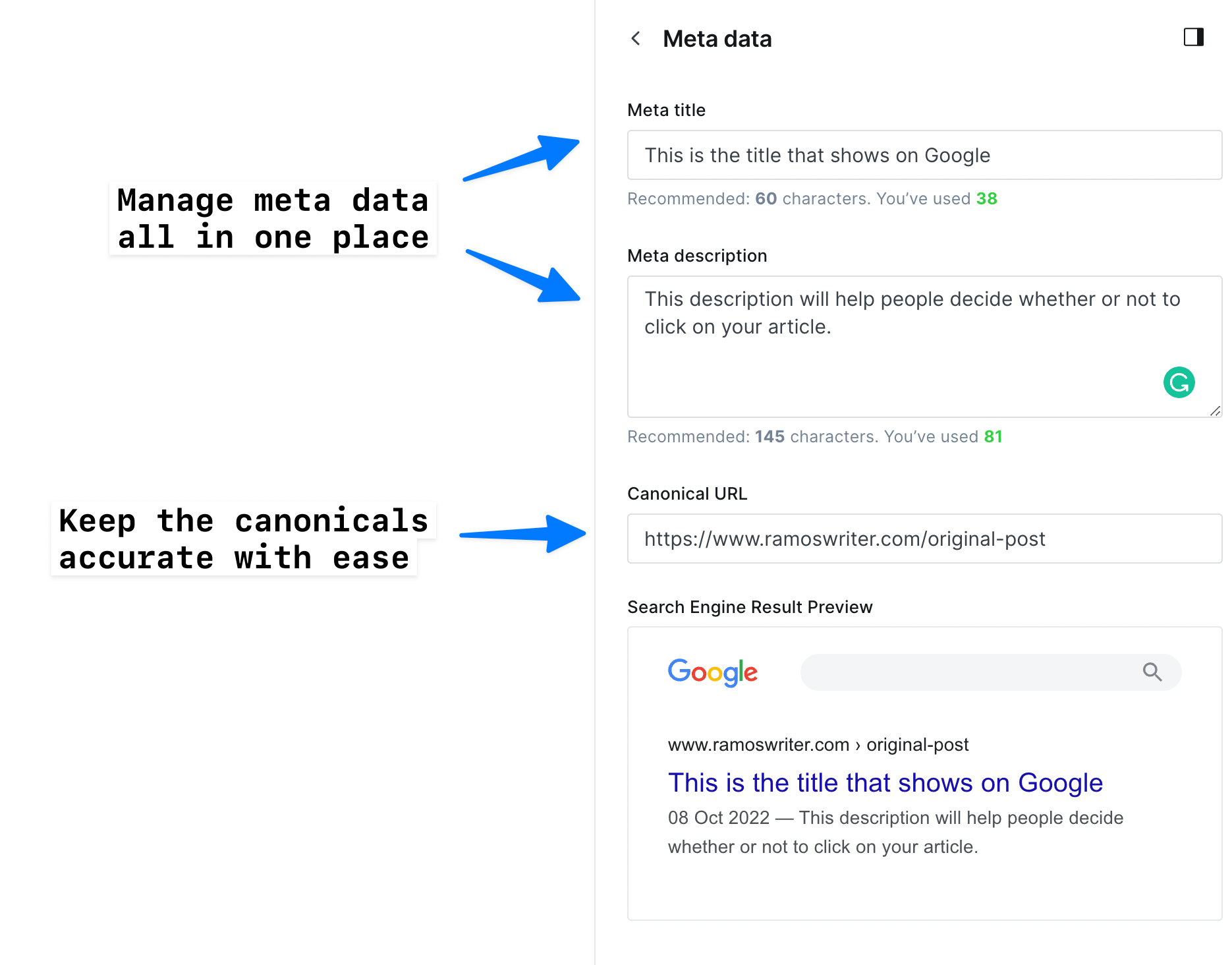
- WYSIWYG design elements. Pronounced “wizzy wig,” this makes it easier for users to see what their page will look like before hitting publish. Organization is an underrated SEO factor.
- Ability to add and edit links. Internal and external links are the foundation of a strong search strategy.
- Tag, organize, and structure content collections. Another organization element, when you group content logically on your site, it makes it easier for search engines to understand where your authority lies.
- Simple navigation. As you build out your content and add pages, make it easy to find and access everything. If a human has trouble finding something, the chances of it ranking will go down.
- Update content. Search engines factor in “freshness,” meaning that articles that haven’t been touched in years eventually decrease in relevance and ranking. So, if you can keep your articles fresh — which includes having the modified date automatically update, which Ghost does — then you’re more likely to keep your rankings for the long haul.
- Image optimization. Pictures are a huge, complex topic, but the basics are that they need to be small, fast, and include context (e.g., alt text, descriptive text, name the file with a keyword, etc.).
The Ghost platform excels in every single one of these areas. You can start a free trial and test it out for yourself. How does the editor compare to other platforms you’ve used? I’d love to hear your thoughts!
Technical SEO features
- Automatic XML sitemap generation. When you used to go to a theme park, they would hand you a small trifold map of the park, so you knew where all the important rides were. Sitemaps are the same things for blogs. They help search engines know what to look for, which leads to a host of benefits.
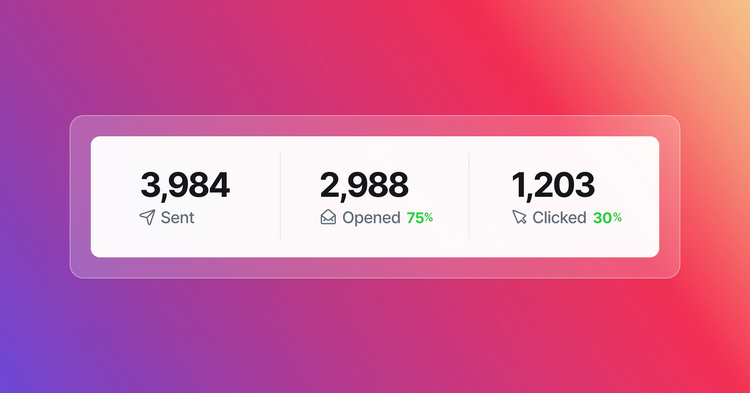
- SSL certificates. This is a security feature that is essentially mandatory for web experiences. It’s crazy that some CMS tools don’t provide this by default.
- Lightweight software. Loading speed is how fast a reader can access your site when they click on a link. If the software you use is “bloated,” it can add seconds to load time — which causes people to leave quickly and ultimately decreases your rankings. Fast is good!
- Code injection. If you want to track analytics or show ads on your blog, you’ll need to touch a minimal amount of code. Ghost makes this as easy as copy and paste.
- 301 redirects. As your site grows and evolves, you’ll need to move content around. In most cases, this is a headache and requires a professional. With Ghost, you can follow this redirect tutorial and have it completed in just a few minutes.
- Structured markup. This advanced feature is becoming more influential in search rankings. For our needs, you just need to know that the most important elements are done for you in Ghost.
- Canonical tags. Canonicals help search engines understand the history and importance of certain pages. And again, Ghost takes care of self-canonicals for you while offering easy access when it comes time to add your own.
- Analytics. Finally, there are some items that Ghost can natively measure, which can impact your SEO strategy. Having these built-in to your platform increases your security while decreasing your load time — giving you more information and your readers a better experience simultaneously.
The technical side of things can be intimidating, especially when you’re brand new to these domains. That’s why having a tool that does the heavy lifting for you is so important. You don’t need to be a technical SEO expert to run a successful blog. You worry about publishing great content and let Ghost do the rest.
Do your homework
I’ve given you a lot to think about. Hopefully, you’re starting to see that SEO is a complex subject, but one that shouldn’t stop you from building your project. Because ultimately, the best CMS is the one that encourages you to create.
Whatever tool tears down the most barriers to entry and helps deliver your work to the world is the one you should go all-in on. If you’re not publishing consistently and striving to get your words and voice out there, then all of the SEO tricks in the book won’t help you reach your goals.
For me, Ghost has been that solution: a content management system that feels like a partner in my business-building journey. I hope it can become the same for you.


